Sustainable Wine Glasses That Don’t Cost the Earth
Sustainable Wine Glasses: The Complete Buying Guide for Eco-Friendly Glassware That Lasts
Sustainability has become one of those words that gets thrown around so much it's almost lost meaning. Every company claims to be "eco-friendly," every product promises to "save the planet," and every purchase decision now comes with a side order of environmental guilt.
When it comes to wine glasses, sustainability actually matters. Not in a virtue-signalling, "look-how-green-I-am" sort of way, but in a genuine, practical sense that affects both your wallet and the environment.
I've spent the last decade selling Riedel glassware, and sustainability questions have gone from occasional afterthoughts to front and centre concerns. People want to know where their glasses come from, how they're made, and whether they'll last long enough to justify the environmental cost of production.
In This Guide
Why Sustainable Wine Glasses Matter
Glass contributes nearly 30% to a bottle of wine's overall carbon footprint, and, according to a California Wine Institute study, glass packaging contributes over 50% of the entire carbon footprint.
Wine glasses face similar environmental challenges. Manufacturing requires massive energy input, with furnaces running 24/7 at temperatures that would make a pizza oven weep.
The Trade-Off: Reusability vs Manufacturing Impact
But here's the crucial trade-off: unlike plastic alternatives, glass is 100% reusable and recyclable. A quality wine glass can last decades and be melted down and reformed indefinitely without losing quality.
The question isn't whether glass has environmental impact (it does), but whether you're buying glasses that minimise the bad while maximising the good.
What Makes Wine Glasses Sustainable?
Sustainable wine glasses combine three essential elements:
1. Environmentally certified manufacturing with ISO 14001 and ISO 50001 standards, using recycled materials (40-50% recycled glass) and locally sourced raw materials
2. Lead-free, non-toxic production that's safe for workers and consumers, with BPA-free processes
3. Decades-long lifespan through quality design and dishwasher-safe durability
The key differentiator: a quality wine glass used three times weekly for 20 years has a negligible environmental impact per use compared to cheaper alternatives replaced annually.
💡 Look for This: ISO 14001:2015 and ISO 50001:2011 aren't marketing terms - they require regular third-party audits.
If a manufacturer claims to be "eco-friendly" without these certifications, ask why they don't have them.
Riedel's Approach to Sustainable Glassware
ISO-Certified Environmental Manufacturing
Riedel has been making glassware since 1756. When you've been making glass for that long, you've either figured out how to do it efficiently or you've gone out of business.
Their production facilities hold ISO 14001:2015 and ISO 50001:2011 environmental certificates - third-party verified standards requiring regular audits and continuous improvement.
Specifically, their energy-saving projects cover compressed air optimization, advanced burner technology, energy-efficient drives, LED lighting, waste heat recovery, and water-saving measures.
Recycled Materials and Local Sourcing
New Riedel glasses are made from up to 50% recycled glass from within the factory. Production is completely BPA-free (BPA is a chemical used in plastics and resins that can leach into food and drinks, especially when heated or in contact with acidic or fatty substances), and the main raw materials are locally sourced - quartz sand from Hirschau, Germany, less than 250km from the factory, ensuring short transport routes.
Lead-Free Crystal Production
In 2015, Riedel removed lead from all their crystal. Quality remained identical while significantly improving environmental impact and worker safety. As Maximilian Riedel said: "That was a big step for the environment and my employees too because lead in production can be harmful to people."
That transparency matters. Anyone claiming glass production is environmentally neutral is lying. What matters is continuous improvement and honest communication.
Award-Winning Sustainable Packaging
Riedel's packaging won a Sustainability Award with Mondi for their RIEDEL Performance range. All packaging is recyclable, and display boxes are made from Forest Stewardship Council certified products.
And more interesting stuff happens at our end - at The Riedel Shop.
How We Do Things at The Riedel Shop
We send out thousands of parcels each year, and we've tried to balance protection with environmental responsibility in some genuinely practical ways.
Reusing Supplier Boxes
You might receive your Riedel glasses in a delivery box advertising something completely different.
We receive a huge amount of boxes from suppliers. Rather than recycling these immediately and buying new shipping boxes, we try to reuse them for orders wherever possible.
That box has already been manufactured and transported. Using it again means one less new box manufactured and one less box going straight to recycling.
The exception? Gift orders get plain, anonymous boxes.
Nobody wants their surprise present arriving in a box screaming "EXPENSIVE WINE GLASSES INSIDE."
Is a previously used box as pretty as pristine packaging? No.
Does it help save on cardboard? Absolutely.
On-Site Cardboard Shredding for Circular Economy
In 2021, we received a Business Development Grant from our local council for various improvements, including a cardboard shredding machine.
Between The Riedel Shop and our sister company, Art of Living Cookshop, we generate over 4 cubic metres of waste cardboard weekly. Previously, all went off to recycling facilities.
Now?
Thanks to our brilliant Cushion Pack CP422S2i Cardboard Shredding Machine (not a very sexy name, I know) we send away an average of one small box per week. The rest we shred on-site and reuse it as protective void fill for outbound orders.
Think about what that saves: collection transport, processing transport, manufacturing emissions, and return transport.
Instead: shred on-site and immediately reuse.
It's proper circular economy stuff. The kind that makes you wonder why more companies aren't doing it.
The answer: cardboard shredders aren't cheap, and explaining the purchase price to accountants can be awkward!
♻️ Real Circular Economy: Our cardboard shredder processes over 4 cubic metres weekly. Instead of collection → processing → manufacturing → return transport, we shred on-site and reuse immediately.
According to our box supplier, most boxes are recycled back into new ones within 14 days, which is pretty good.
But not recycling in the first place?
Even better.
Protecting Glasses to Prevent Waste
Our boxes configure into 21 different sizes. But occasionally you'll receive what looks like an unnecessarily large box with excessive packing.
This is deliberate. We'd rather overprotect than have glasses arrive smashed.
Most companies fill around sides and top. We also protect underneath - something many skip, leading to breakage when boxes are dropped or stacked excessively.
Broken glasses are an environmental disaster - manufacturing impact with zero benefit, plus disposal issues. Better to use slightly more recycled cardboard padding than replace broken glasses, with all the extra emissions from the repeat delivery.
All our packing materials are recyclable. The SuperTube (bubble wrap on steroids) that we use is made from LDPE, which recycles into plastic panelling, bin liners, furniture, and compost bins, and is itself made from recycled plastic.
We also recycle as much of our suppliers' packaging, that we can't reuse, as possible. Our weekly collection from Simon (our recycling guy, affectionately named Hungry Simon, as his company is Hungry Recycling) usually involves considerable last-minute rushing about to make sure everything is sorted properly.
Running a sustainable business isn't effortless green utopia.
It's Hungry Simon turning up while you're frantically sorting paper from plastic.
What This Means When You Buy From Us
When you buy Riedel glasses from The Riedel Shop:
The glasses:
- Made from up to 50% recycled glass
- Lead-free crystal
- Locally sourced raw materials
- Energy-efficient manufacturing with proper certifications
- 100% recyclable at end of life
- Designed to last decades
The packaging:
- FSC-certified display boxes
- Reused supplier boxes for outer packaging
- Void fill made from shredded cardboard that would otherwise be recycled
- All materials fully recyclable
- Protected properly to prevent breakage
The manufacturers:
- 269 years of glassmaking expertise
- Family-owned (long-term thinking)
- Transparent about challenges
- Proper certifications, not just marketing claims
The Lifespan Question: Why Quality Matters Most
Here's what matters most: how long will your glasses actually last?
Even with significant manufacturing energy input, a glass you use three times a week for twenty years has an infinitesimally small environmental impact per use.
I've had customers using the same Riedel Vinum glasses for fifteen years. Not locked away for special occasions - using them regularly, washing them carefully, still perfect.
That's the sustainability sweet spot: quality that lasts.
The Cost Reality
As I wrote last week, a pair of Riedel Vinum glasses costs £43.95. Use them three times a week for three years? That's roughly 9 pence per use. Or 28 pence per week. Less than a loaf of bread monthly.
💰 The Maths:
£43.95 for 2 glasses ÷ 468 uses (3× weekly for 3 years) = 9p (ish) per use.
Compare that to buying £10 glasses every year because they keep breaking. Over a decade, you've spent £100, generated ten times the packaging waste, ten times the manufacturing impact, and never had glasses as good as the ones you could have bought once.
False economy, both financially and environmentally.
What to Look For
If you're shopping for sustainable wine glasses - Riedel or otherwise - look for:
- Environmental certifications (ISO 14001, ISO 50001) - not just marketing waffle
- Lead-free production with recycled content (40-50%)
- Quality that'll last decades, not years
- Packaging that's recyclable and adequate to prevent breakage
- Transparency about production and sourcing
The Bottom Line
Sustainable glassware isn't about perfect environmental credentials. It's about understanding trade-offs and making informed choices.
Glass production uses huge amounts of energy - that's unavoidable. But glass is also completely recyclable, non-toxic, and can last generations.
Riedel combines centuries of expertise with modern sustainability: recycled materials, energy efficiency, local sourcing, and responsible packaging.
The Riedel Shop adds another layer: we reuse supplier packaging, shred cardboard for void fill, provide proper protection to prevent breakage, and offer replacement options for accidents.
Perfect? No.
But thoughtful, comprehensive, and genuinely trying to minimise environmental harm while delivering quality.
And ultimately, the most sustainable glass is the one you don't break.
Choose well, handle carefully, and enjoy your wine knowing you've made a good, considered decision.
Because good wine deserves a good glass. And you deserve a glass that doesn't cost the earth - literally.
The irony isn't lost on me that I've just written 1,500 words about sustainable glassware when the entire message boils down to: buy good stuff, don't break it, use it for decades.
But if I'd written that, you'd have missed the bit about our cardboard shredder.
And honestly, that machine brings me far more joy than it probably should.

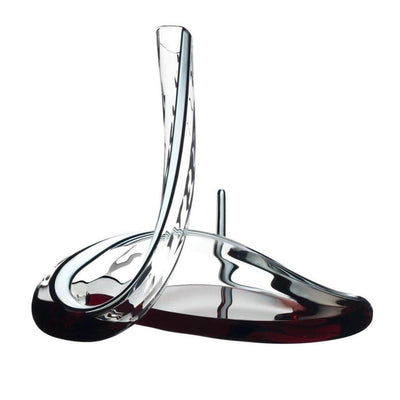
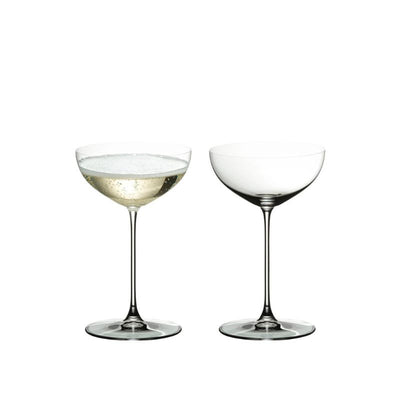
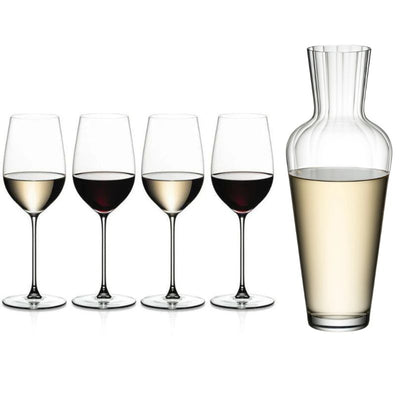
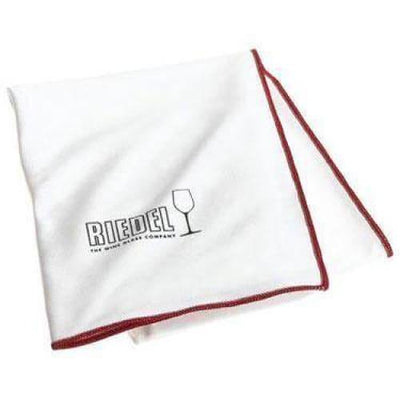




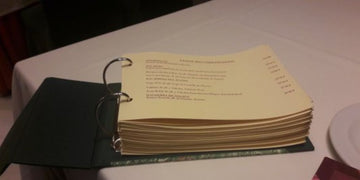


Leave a comment